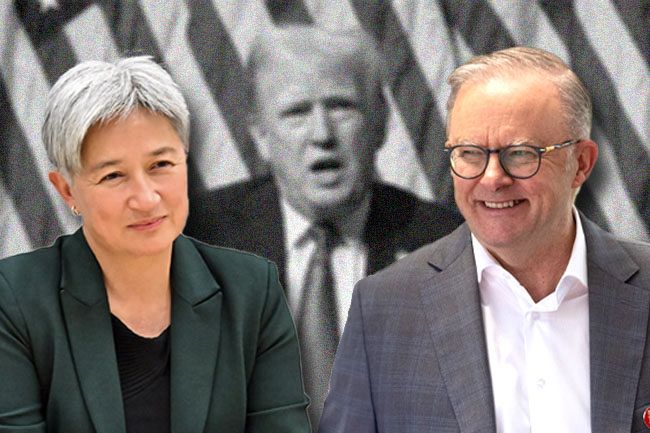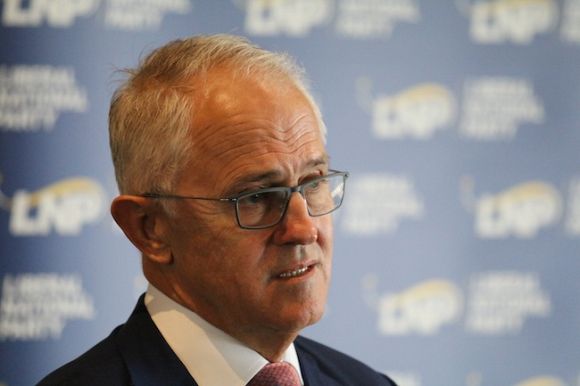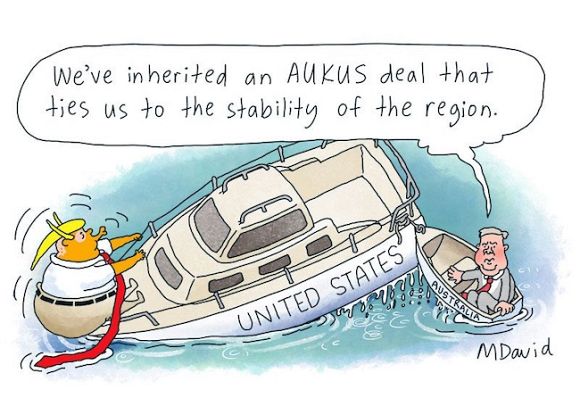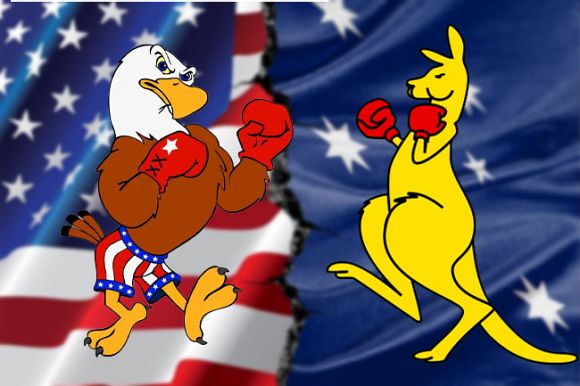The re-elected Labor Government has a chance to adopt a defence strategy that values what's most important to Australians — their very lives. Dr Bronwyn Kelly writes.
AT THE RECENT National Press Club forum organised by former PM Malcolm Turnbull on Australia’s Sovereignty and Security, there was a lot of talk about how to “recalibrate” our defence activities and industries in response to the rise of U.S. President Trump, but little if any talk about how we might redesign our defence strategies to protect what Australians actually value.
An understanding of what Australians value for themselves, their nation and their future ought to be an essential starting point for development of a well-balanced defence and diplomacy strategy, if only because Australians do need to be assured that whatever posture we adopt in defence and foreign policy will actually protect what we value, not destroy it.
Australia’s current defence policies are not well balanced for this purpose. They are more likely to destroy what we value than they are to safeguard it.
At best, they walk very uneasily on a razor’s edge between:
- protecting us from foreign attack and exposing us to it;
- retaining our sovereignty over the country and ceding it to the U.S.; and
- saving our trading relationships, particularly with Asia, and wrecking them.
Generally, Australia’s current defence postures expose Australia to more threat than is necessary, or worse, create threats where there are none.
These policies are out of balance because the powerful in Canberra frame them from the wrong starting point. They persist in assuming that China is a threat to Australia and that the U.S. alliance, no matter how problematic and unreliable it has become, is still somehow essential to protecting what we value. The irony of this is that because we have started with that idea of China as a threat and as a country that does not share our values, we have ended up with a far too close relationship with a country that clearly no longer shares our values.
As Malcolm Turnbull has admitted:
“For 80 years, we’ve regarded our great ally, the USA, as having shared values and shared interests. Well, not all interests were aligned all the time, but certainly we felt values were. It’s very hard to say that today.”
For Turnbull, the divergence in values has mostly arisen from Trump’s ushering in of a “might is right” world. He rightly complains that Trump doesn’t support the international rules-based order. The America Turnbull describes quite accurately is now a country that has declared itself willing and eager to use its economic and military power to advance America at the expense of all other countries, whether they are allies or adversaries.
Under Trump, America is a belligerent autocracy. This is a description that hawkish defence elites in Canberra and the media have applied to China. But the sobering reality is that it now far more accurately describes the U.S.
In a rational assessment, this ought to necessitate a shift in defence policy that is more than the mere “recalibration” called for by Turnbull and the broader Australian community knows it. He favours reviewing AUKUS but keeping the U.S. alliance.
However, community groups like the Independent and Peaceful Australia Network (IPAN) and Australians for War Powers Reform (AWPR) are calling for independent reviews of AUKUS, the Force Posture Agreement and the U.S. alliance itself. They can see that the time has come for a fundamental rethink. Major change is required. Minor adjustments implied by the word “recalibration” don’t make sense when America has been described as Turnbull himself has done.
If America is what Turnbull says it is now, then it’s not just necessary to abandon AUKUS, it’s time to look squarely at whether the U.S. alliance is in Australia’s interest. By any measure, it is not — and if proof is required on that point we need only to listen to the scathing description of the U.S. under Trump by one of America’s own foremost economists and public policy analysts, Columbia University professor and president of the UN Sustainable Development Solutions Network, Jeffrey Sachs (tip: start listening at 7 minutes, 30 seconds).
The U.S., by Sachs' description, is no longer something we should want to be allied to, especially if we expect to be safe economically and militarily.
Abandoning the U.S. alliance is apparently still a step too far for someone like Turnbull. But that is only because he still views China as a threat to our values and one that is bigger than any threat that might now be posed by the U.S. Yet if we are to calmly assess where the bigger threat really lies, a good place to start would be to look squarely at whether and how each of these countries might be threatening what we value. This, of course, requires us first to understand what we value.
Australians have freely responded in surveys over recent decades when they’ve been asked about what they value. My latest book, The People’s Constitution, documents these responses and summarises them in a long list of things — 28 things by my count (expressed in about 500 words). You can read them at this link. But if we select the things we value for the purpose of efficiently framing a defence policy, we can probably narrow the list down simply by asking ourselves what we’d be prepared to lay down our lives for.
Given what Australians have said about what they value, it is doubtful any would answer that they would lay down their own and their kids’ lives for Taiwan’s independence from China, or for America’s new form of belligerent autocracy under Trump. Given a neutral framework in which to think, they’d be far more likely to identify their own well-being and a just society as the key criteria against which defence strategies should be assessed.
Any defence strategy that asks them to sacrifice either or both of those things is ill-suited not just to Australian values but to our entire safety. They’re our bottom line. And the problem with the U.S. alliance and Australia’s current aggressive defence posture (including AUKUS) is that they require us to sacrifice those essentials. They require us to sacrifice our well-being and safety, even before we start to fight. They require exorbitant and ever-growing expenditures for activities which will consume all our human and natural resource capacity and leave nothing for the key thing we are trying to protect — a life of wellbeing and safety in a just society.
Participation in war cannot protect what Australians value. There is no circumstance in which what we value can be successfully defended by military means. If we get to the point where we are defending these essentials militarily, we’ve already lost. Preparation for war will slowly destroy our well-being and eventual entry into war will finish us off. So, unless there is evidence that the essential things we truly value are being threatened right now by China, there is no point in being part of any provocation to war with them. We will lose well before we start.
This is why the only defence strategy that will protect what Australians value is a diplomatic one in which we reassure countries in our region that they can trust us to act responsibly as an international citizen and not simply as the deputy sheriff carrying out the U.S.'s belligerent "containment" strategy. We need to be seen as a country committed to mutual benefit — win-win, not win-lose. We can’t do that if we continue to cling to the U.S. as a military ally.
It is worth noting that in his acceptance speech on election night, Prime Minister Anthony Albanese emphasised his commitment to “Australian values”, singling out “fairness, aspiration and opportunity for all, the strength to show courage in adversity, and kindness to those in need”. We are yet to see whether the new government will “show courage” in a form sufficient to begin a process of demilitarising Australia’s alliance with the U.S.
Somewhere within the debate in Canberra about the form of our alliance with the U.S. we ought to find a space to review what we value. At Australian Community Futures Planning, we use the values summarised in The People’s Constitution to guide the development of draft plans for a better Australia. We also revise those values as research comes to light.
Governments could do worse than get into the habit of using these values to build a smart defence strategy, one that is not likely to result in calling on Australians to give up the thing they value most — their own lives.
Dr Bronwyn Kelly is the Founder of Australian Community Futures Planning (ACFP). She specialises in long-term integrated planning for Australia’s society, environment, economy and democracy, and in systems of governance for nation-states.
 This work is licensed under a Creative Commons Attribution-NonCommercial-NoDerivs 3.0 Australia License
This work is licensed under a Creative Commons Attribution-NonCommercial-NoDerivs 3.0 Australia License
Support independent journalism Subscribe to IA.















